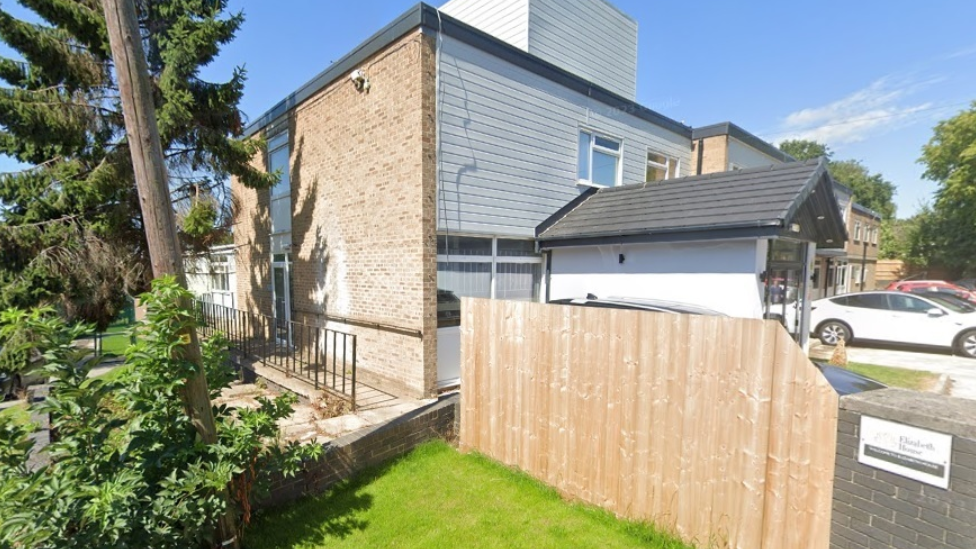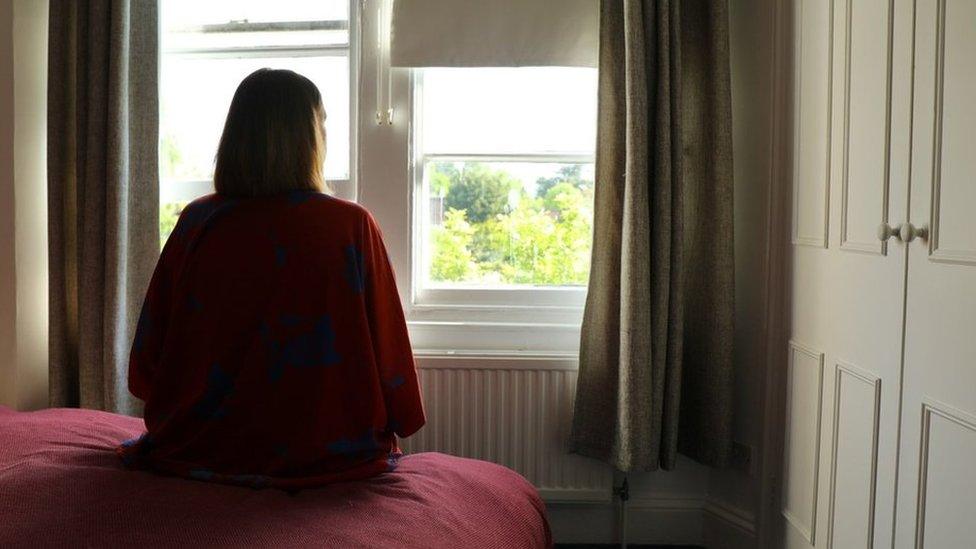Patients at Leicester mental health hospital at risk of harm, says CQC
- Published

Elizabeth House has capacity for 30 mental health patients
Patients at an independent mental health hospital are at risk of harm, a watchdog has said.
The Care Quality Commission (CQC) said it uncovered a number of failings at Elizabeth House in Leicester during a two-day inspection in December.
Inspectors said in a report, external there was a shortage of nurses at the facility and patients were left at risk of strangulation.
The hospital's owner, Plans4Rehab, has been contacted for comment.
The CQC judged the 30-bed facility, in Perth Avenue, as requiring improvement in its standard of safety, effectiveness, responsiveness and leadership.
However the hospital was rated "good" when inspectors assessed how caring it was.
The Local Democracy Reporting Service (LDRS) said the CQC report found wards were safe, clean, well equipped, and well maintained.
However the report said staff could not easily observe patients in all areas and there were some CCTV blind spots.
Not all staff knew about "potential ligature anchor points" and some had not seen its ligature risk assessment, the CQC found, and this left patients at risk of harm.
'Not enough nurses'
Inspectors also found the hospital's seclusion room - used to isolate patients when they are acting in a way that could cause harm to others - was off-limits as there was a danger patients could harm themselves inside if they did use it.
The room appeared to be unfinished, the CQC said, and was "not fit for purpose" because patients in the room could potentially hurt themselves inside.
Inspectors also warned patients did not have access to fresh air when they wanted it because windows across the hospital could not be opened.
The CQC concluded the hospital did not have enough nurses and was dependent on agency staff to keep patients safe from "avoidable harm".
However, inspectors did note the service had enough daytime and night-time medical cover and a doctor available to go to the wards quickly in an emergency.
The report said: "Staff understood how to protect patients from abuse and the service worked well with other agencies to do so. Staff had training on how to recognise and report abuse and they knew how to apply it."
However it said staff were also "not always able" to show "knowledge of national guidance and best practice" for the "range of treatment and care" provided to patients.
The CQC added: "We observed staff treat patients with compassion and kindness. They respected patients' privacy and dignity. They understood the individual needs of patients and supported patients to understand and manage their care, treatment or condition."

Follow BBC East Midlands on Facebook, external, on X, external, or on Instagram, external. Send your story ideas to eastmidsnews@bbc.co.uk, external or via WhatsApp, external on 0808 100 2210.
Related topics
- Published30 January 2024

- Published8 September 2023
